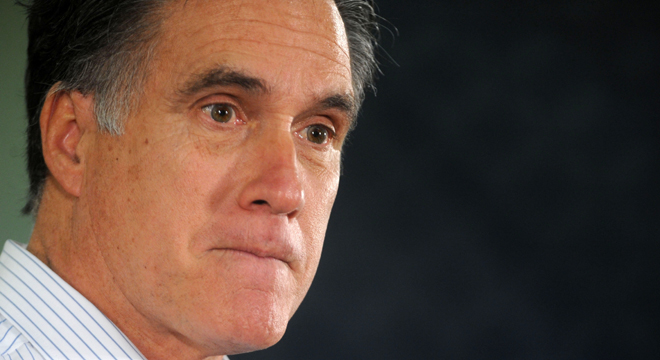Reporters covering the GOP primary horse race may have moved on, but a key question continues to dog Mitt Romney’s presidential campaign — one that will loom large if he wins his party’s nomination. Has he avoided U.S. taxes by investing a fortune offshore?
At a town hall event in Maine on Friday, an antagonistic questioner asked Romney, “Do you think it’s patriotic of you to stash your money away in the Cayman Islands?”
In response, Romney correctly noted that money U.S. taxpayers invest offshore is largely taxed just as it would be if they invested it in the states. But he once again denied avoiding any U.S. taxes by investing offshore — a claim tax experts openly doubt.
Every dollar that’s in any enterprise, whether it’s foreign or domestic, you have to pay U.S. taxes on it. You might think you can put your money somewhere else and you don’t pay U.S. taxes – of course you do. And the blind trustee, meeting with the media, said, Mr. Romney has paid all U.S. taxes, I have not saved one dollar by having an investment somewhere beside this country.
But this doesn’t always have to be true. As we’ve explained here repeatedly, Romney’s massive individual retirement account could very easily have avoided a significant (35 percent) tax called the unrelated business income tax (UBIT), if it is invested in any offshore entities that finance their own investments with debt. Tax exempt vehicles like the IRA are subject to the UBIT when they invest in companies that use leverage here in the U.S. But they can avoid the UBIT altogether by investing in companies that use leverage in other countries.
Romney’s camp has declined to address this question directly, despite growing attention from segments of the media — most recently the New York Times. If it turns out he has avoided this tax, it will puncture the central defense of his offshore investments.






